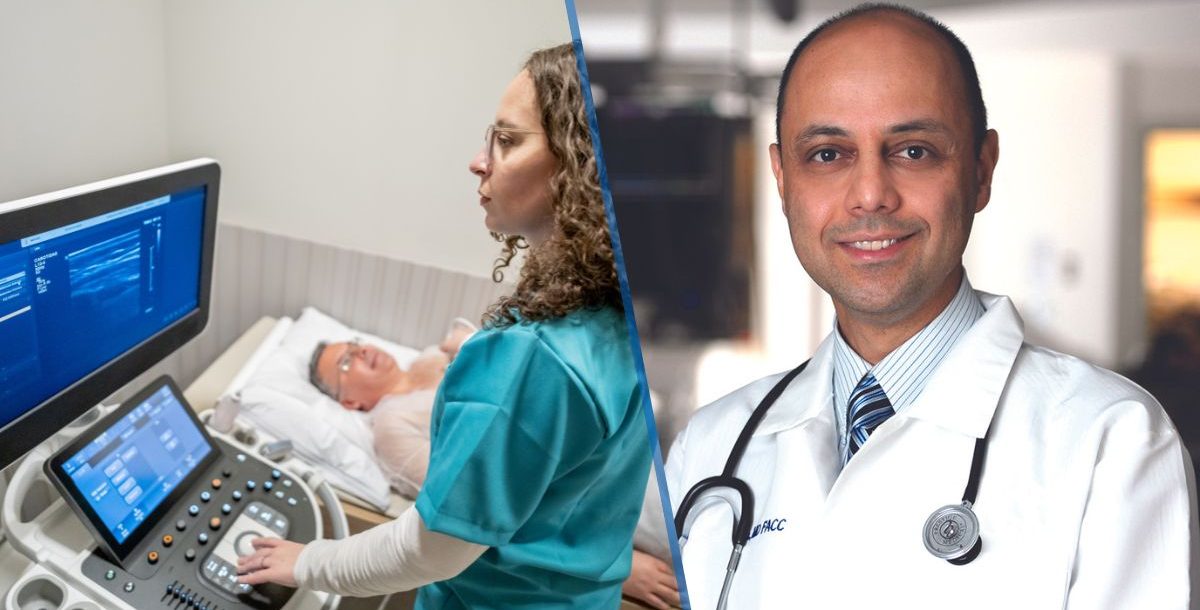The following piece was written by Reza Mehzad, MD, an electrophysiologist and cardiologist at Mercy Health – The Heart Institute, Fairfield, in our Cincinnati market.
Imagine living with a heart that beats out of rhythm, causing fatigue, dizziness and an unsettling sense of uncertainty about your health. For millions of Americans, this is the daily reality of living with AFib, or atrial fibrillation.
If left untreated, AFib can lead to problems such as stroke, heart failure and chronic fatigue. Let’s explore more about AFib, what can be done about it and the role of the AFib Clinic at Mercy Health.
What is AFib?
Atrial fibrillation, also known as AFib or AF, is an arrhythmia that occurs when the atria (upper chambers of the heart) do not beat properly causing an irregular heartbeat. It is the most common type of irregular heartbeat.
Symptoms of AFib can include heart palpitations, shortness of breath, fatigue, dizziness and chest pain. However, some individuals may not experience any symptoms, making regular check-ups crucial for early detection and management.
AFib causes, risk factors and treatment
AFib occurs when the heart’s electrical system is damaged. This damage can be caused by a variety of factors, including heart attacks, high blood pressure, heart failure, alcohol abuse, heart valve disease, overactive thyroid and congenital heart defects.
While anyone can experience AFib, it is more common in those older than 60 years old. Additional risk factors include diabetes, high blood pressure, coronary artery disease, cardiomyopathy, congestive heart failure, pericardial inflammation and structural heart disease.
It is important to note that there are different types of AFib. To determine the type, cardiologists perform a physical exam and may order additional testing such as an electrocardiogram (EKG), a heart monitor, or an MRI.
Once the type of AFib has been determined, your physician can suggest the best course of treatment, which can range from medication for mild cases to surgical ablation for more severe cases. The goals of treatment are to normalize the heart rhythm, prevent blood from clotting and decrease stroke risk.
How the AFib Clinic can help
The AFib Clinic in Cincinnati is designed to provide comprehensive care tailored specifically to patients with this condition. The clinic offers a range of services, including:
- Advanced diagnostics: Utilizing state-of-the-art equipment, we will perform thorough evaluations to accurately diagnose AFib and assess its severity.
- Personalized treatment plans: Each patient will receive a customized treatment plan, which may include medication management, lifestyle recommendations, and possibly procedural interventions.
- Patient education: Empowering patients with knowledge about their condition is a key focus. We will provide educational resources to help patients understand AFib and actively participate in their care.
What patients can expect
When you visit the Mercy Health AFib Clinic, you can expect a patient-centered approach to your care. Here’s what a typical journey might look like:
- Initial consultation: During your first visit, a thorough medical history will be taken, followed by a physical examination and discussion of any initial diagnostic tests.
- Diagnosis and discussion: After evaluating the results of any necessary testing, we will discuss your diagnosis in detail, explaining the nature of your AFib and its potential impact on your health.
- Developing a treatment plan: We will work together to create a personalized treatment plan that addresses your specific needs and lifestyle.
- Follow-up care: Regular follow-up appointments will be scheduled to monitor your progress, adjust treatments and address any concerns you may have.
- Support and resources: Throughout your journey, our team will provide continuous support and access to resources to help you manage your condition effectively.
How loved ones can support
Support from family and friends is invaluable for individuals managing AFib. Here are some ways loved ones can help:
- Educate themselves: Understanding AFib can make it easier to provide support. Take the time to learn about the condition, its symptoms and treatment options.
- Encourage healthy habits: Encourage and participate in heart-healthy lifestyle changes, such as regular exercise, a balanced diet and stress management techniques.
- Attend appointments: Accompany your loved one to their clinic visits. This not only provides emotional support but also helps you stay informed about their care.
- Offer emotional support: Living with AFib can be challenging. Be a source of encouragement and reassurance, helping them stay positive and motivated.
- Monitor symptoms: Help keep track of any new or worsening symptoms and ensure they are reported to the health care team promptly.
The AFib Clinic in Cincinnati is ready to meet the needs of the community. Together, we can navigate the complexities of AFib and work toward better heart health.
Learn about the heart and vascular care services we offer at Mercy Health.






